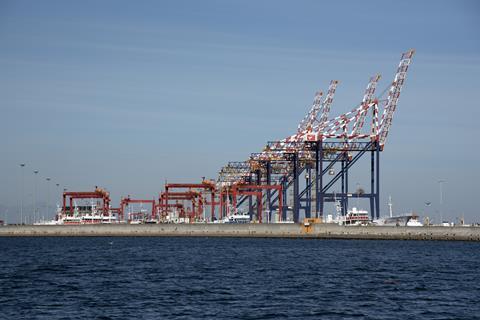Industry calls for meaningful change after the first state of the nation address under the new Government of National Unity
Non-functioning state-owned enterprises in South Africa have endured major restrictions when it comes to effective fresh produce exports.

South Africa’s president Cyril Ramaphosa, in his first state of the nation address (SONA) under the Government of National Unity, promised again that entities like Transnet would be repositioned to provide world-class infrastructure while enabling competition in operations.
“The CGA welcomes the president’s commitment to ensuring that there are functional state-owned enterprises (SOEs),” the Citrus Growers Association (CGA) stated. ”However, many reform initiatives have been launched by government in the past, to no or minimal effect.”
“2025 must be a year of action on the logistics front,” noted Boitshoko Ntshabele, the newly appointed chief executive of the CGA.
”There seems to be a general assumption that the logistics crisis is over, but we are not out of the woods yet.
“We look forward to working with government to achieve the inclusive economic growth that only functional logistics can unlock,” he outlined.
The CGA said that the establishment of a dedicated State Owned Enterprises (SOE) Reform Unit was also mentioned by Ramaphosa in his national address.
“It is essential for the citrus industry that the efficiency of the container terminals at ports improve,” the association continued. ”The only long-term way to achieve this, is through public private partnerships that government has committed to enacting.”
Citrus production in South Africa is increasing, and over the next seven years exports could increase from 165mn cartons to 260mn cartons.
“This would not only create 100,000 new jobs but also boost our economy with much needed foreign exchange revenue for the fiscus,” the CGA commented.
Progress was being made in South African ports by Transnet, it acknowledged.
“As the president stated, new cranes and other port equipment are being commissioned to speed up the loading and unloading of cargo and reduce waiting times for ships.
”However, container terminal efficiency remains low, and the expected increase in citrus production will place further pressure on the ports – pressure they must be able to handle if the export economy is to grow,” the CGA noted.
Ramaphosa also referred to the publication of the new Transnet Network Statement in December 2024, which will enable private rail operators to access the freight rail system.
“This has the potential to be a moment of historic importance,” explained Ntshabele. ”Urgency on the rail front will also boost our industry, as 90 per cent of all citrus is currently moved to ports via roads, a more costly form of transport.”
In his address, Ramaphosa also stated that opening new export markets for products could significantly expand the South African agricultural sector.
“New and expanded access to markets in Asia and the United States will not only benefit the local economy, but the consumers in the destination countries as well, as South African citrus is widely valued for its counter-seasonal supply of quality citrus,” the CGA confirmed.
“South Africa is the second largest exporter of citrus in the world,” the association added.
“The industry shares president Ramaphosa’s stated goal, which is to ensure that South African minerals, vehicles and agricultural produce reach international markets, securing jobs and earning much needed revenue for our fiscus.”



